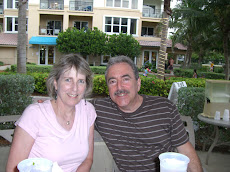
My blog earlier today using Barry Goldwater's quote, and reflecting that he was a conservative candidate in 1964, made me think back to that year. I was in 9th grade at the beginning of that year at Morton Junior High School in Lexington, Kentucky, and pretty much saw politics through my parents' lens. He may have seemed radical to some then, but he represented a separation of government from other areas like religion and personal choice which liberals have always promoted.
But back to Spring 1964: After school my friends and I used to walk down to Chevy Chase to a dive that served grilled buttered french toast and we would douse this crispy bread with spicy mustard. We would sing Leslie Gore's "It's my party and I'll cry if I want to" and shimmied in unison along Tates Creek Road. My first boyfriend was Johnny Johnson and we sat next to each other in typing class - "Johnny Angel" was a popular song at the same time, so I would sing along to the 45 on my record player.
A lot happended in this school year, like John F. Kennedy's assasination in Fall 1963. I was sitting in the library at school when an announcement came over the loudspeaker: "the President of the United States has been shot."
My sister Deedie was navigating her first college experiences and had an apartment in Chevy Chase - a studio - and she would let me come down and visit her - I think it was during this time, but might have been slightly later. My Mom and Dad - Sue and Rodger - were putting a lot of time into Kentucky Ornamental Iron to build the business they had bought just a couple of years earlier. We always had dinner together, and my Dad would work again at night and my Mom and I would watch Peyton Place on TV.
This is about the time I started following the Lexington band the Magnificent Seven, a white guys' blues and rock band. Larry Orr was the lead singer, and I was totally crazy for him when he sang "Try a Little Tenderness." For the next three years through high school I was the band's biggest groupie.
I liked the Beatles that year, but a group called the Rolling Stones was capturing my attention with "Time Is on My Side." And Bob Dylan's "Blowin' in the Wind" was making me think. And the Animals "House of the Rising Sun" was making me feel. With the Viet Nam war going stronger, civil rights starting to heat up, and a hint of the women's movement in the air, I was on the verge of starting my life-long pursuit of justice, politics, philosophy and art - I just didn't realize it yet.
Here you go: Otis Redding's "Try a Little Tenderness":
oh she may be weary
them young girls they do get wearied
wearing that same old miniskirt dress
but when she gets weary
you try a little tenderness
oh man that
un hun
hi know shes waiting
just anticipating
the thing that youl never never possess
no no nobut while she there waiting
try just a little bit of tenderness
thats all you got to do
now it might be a little bit sentimental no
but she has her greavs and care
but the soft words they are spoke so gentle
yeah yeah yeahand it makes it easier to bear
oh she wont regret it
no nothem young girls they dont forget it
love is their whole happiness
yeah yeha yeahbut its all so easy
all you got to do is trytry a little tenderness
yeah
damn that hart (hard?)
all you got to do is know how to love her
you've got tohold her
squeeze hernever leave her
now get to her
got got got to try a little tenderness
yeah yeahlord have mercy now
all you got to do is take my advice
you've got to hold her
don't squeeze her
never leave her
you've got to hold her
and never
so you got to try a little tenderness
a little tendernessa little tenderness
a little tenderness
you've got togot to got to
you've gotta hold her
don't squeeze her
never leaver heryou got
got got got tonow now now
got got got to
try a little tenderness
More later.
 Blue-eyed days' domain
Blue-eyed days' domain







